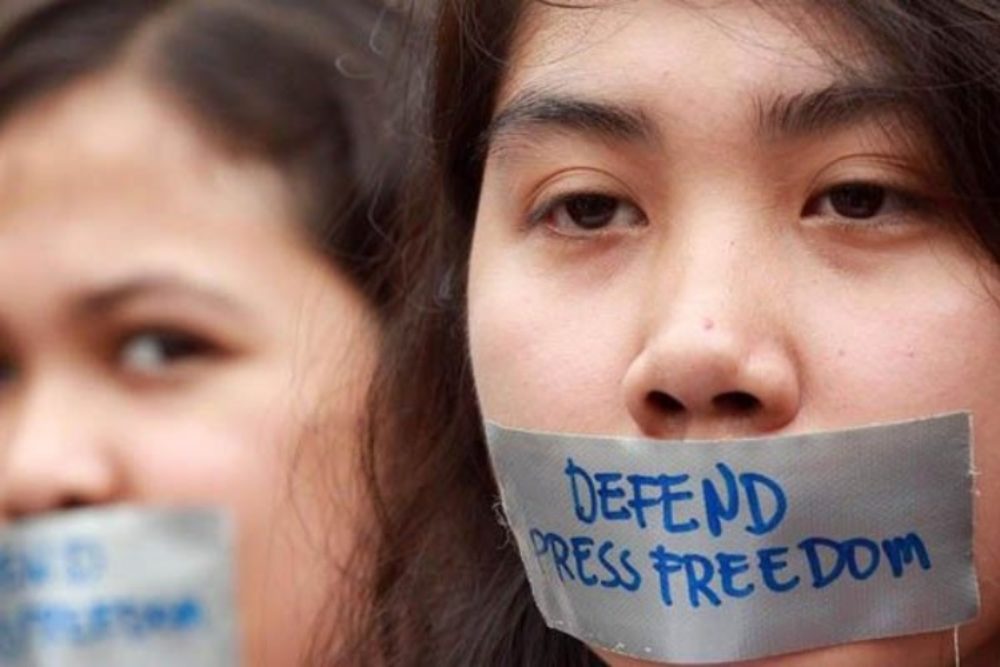Journalists on Tuesday, December 6 have warned senators against passing a bill to criminalize the spreading of “fake news. They asserted that the proposed law may be weaponized to silence dissent and curtail free speech.
During a senate hearing, Gemma Mendoza, Rappler’s disinformation research head, said the term “fake news” can be used “very arbitrarily” and even weaponized by people in power.
“Of all the pandemic-related disinformation that Rappler fact-checked, we noticed that none of those were investigated or apprehended by police. But what happened was that there were some who were arrested because local authorities did not like what they posted online,” Mendoza said.

Jonathan de Santos, chairperson of the National Union of Journalists of the Philippines (NUJP) also cited the case of Cebu artist Bambi Beltran who was arrested without a warrant for writing a sarcastic Facebook post.
“We would like to urge caution in addressing the problem of fake news through legislation that can be used for censorship,” said De Santos, who also heads Philstar.com’s news section.
The Kapisanan ng mga Brodkaster ng Pilipinas (KBP) also raised concerns with how the bill defines “fake news” as it feared that it may affect the exercise of the constitutional right to free speech.
“It should not be too broad to include prohibition of valid political opinions,” KBP’s Rudolph Jularbal said. “Free speech and expression might be curtailed because of the way the law is crafted.”
Under Senate Bill 1296, “fake news” is defined as “misinformation and disinformation of stories, facts and news which is presented as a fact, the veracity of which cannot be confirmed, with the purpose of distorting the truth and misleading its audience.”
Both the Department of Justice and Philippine National Police–Criminal Investigation and Detection Group found a portion of this provision, “the veracity of which cannot be confirmed” to be “questionable” and “conflicting.”
State counsel Gerald Vincent Sosa said on the proposed law “We should remove the phrase ‘the veracity of which cannot be confirmed,’ because it’s very difficult to investigate and prosecute if that itself we cannot ascertain,”.
PCol. Sidney Villaflor, PNP-CIDG’s deputy director for administration, said it would be difficult to ascertain what is real and what is “fake news.”
The PNP official also said “To prove the element of purpose or distorting the truth and misleading its audience, there must be evidence showing the distorted truth and misleading facts. This presupposes the existence of real truth or fact. If the veracity of a particular story, facts and news could not be confirmed, there could be no distortion or misleading,”
Journalists present at the hearing asserted that instead of criminalizing the spreading of “fake news,” more attention should be given to social media platforms and to media and information literacy programs.
The Senate justice and human rights committee said they will be moving forward with the measure, balancing “our constitutional right to free speech versus the engineered and systemic, deliberate distortion of truth and outright spread of lies.”
